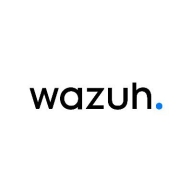


Find out in this report how the two Cloud Workload Protection Platforms (CWPP) solutions compare in terms of features, pricing, service and support, easy of deployment, and ROI.
The detailed information PingSafe gives about how to fix vulnerabilities reduces the time spent on remediation by about 70 to 80 percent.
After implementing SentinelOne, it takes about five to seven minutes.
Cloud Native Security does offer ROI.
Defender proactively indexes and analyzes documents, identifying potential threats even when inactive, enhancing preventative security.
Identifying potential vulnerabilities has helped us avoid costly data losses.
The biggest return on investment is the rapid improvement of security posture.
I have seen value in security cost savings with Wazuh, as using proprietary EDR versions could save us substantial money.
When we send an email, they respond quickly and proactively provide solutions.
They took direct responsibility for the system and could solve queries quickly.
Having a reliable team ready and willing to assist with any issues is essential.
Since security is critical, we prefer a quicker response time.
The support team was very responsive to queries.
They understand their product, but much like us, they struggle with the finer details, especially with new features.
They responded quickly, which was crucial as I was on a time constraint.
We use the open-source version of Wazuh, which does not provide paid support.
The documentation is good and provides clear instructions, though it's targeted at those with technical backgrounds.
I would rate it a 10 out of 10 for scalability.
Scalability is no longer a concern because Cloud Native Security is a fully cloud-based resource.
I would rate the scalability of PingSafe 10 out of 10.
We are using infrastructure as a code, so we do not have any scalability issues with Microsoft Defender for Cloud implementation because our cloud automatically does it.
It has multiple licenses and features, covering infrastructures from a hundred to five hundred virtual machines, without any issues.
Defender won't replace our endpoint XDR, but it will likely adapt and support any growth in the Microsoft Cloud space.
It can accommodate thousands of endpoints on one instance, and multiple instances can run for different clients.
Currently, I don't see any limitations in terms of scalability as Wazuh can still connect many endpoints.
Scalability depends on the configuration and the infrastructure resources like compute and memory we allocate.
It's a reliable solution that the organization is increasingly adopting for its robust features and security.
We contacted Cloud Native Security, and they addressed it in a day.
The only downtime we had was when switching from V1 to V2 but it was smooth.
Defender's stability has been flawless for us.
Microsoft Defender for Cloud is very stable.
Microsoft sometimes changes settings or configurations without transparency.
The stability of Wazuh is strong, with no issues stemming from the solution itself.
The stability of Wazuh is largely dependent on maintenance.
The indexer frequently times out, requiring system restarts.
If they can merge Kubernetes Security with other modules related to Kubernetes, that would help us to get more modules in the current subscription.
As organizations move to the cloud, a cloud posture management tool that offers complete cloud visibility becomes crucial for maintaining compliance.
I would also like to see Cloud Native Security offer APIs that allow us to directly build dashboards within the platform.
Microsoft, in general, could significantly improve its communication and support.
It would be beneficial to streamline recommendations to avoid unnecessary alerts and to refine the severity of alerts based on specific environments or environmental attributes.
The artificial intelligence features could be expanded to allow the system to autonomously manage security issues without needing intervention from admins.
Machine learning is needed along with understanding user behavior and behavioral patterns.
The integration modules are insufficiently developed, necessitating the creation of custom integration solutions using tools like Logstash and PubSub.
I think Wazuh should improve by introducing AI functionalities, as it would be beneficial to see AI incorporated in the threat hunting and detection functionalities.
I believe the enterprise version costs around $55 per user per year.
There are some tools that are double the cost of Cloud Native Security.
I recall Cloud Native Security charging a slightly higher premium previously.
Every time we consider expanding usage, we carefully evaluate the necessity due to cost concerns.
We appreciate the licensing approach based on employee count rather than a big enterprise license.
Microsoft Defender for Cloud is pricey, especially for Kubernetes clusters.
Wazuh is completely free of charge.
I would definitely recommend Wazuh, especially considering Fortinet's licensing model which is confusing and overpriced in my opinion.
Totaling around two lakh Indian rupees per month.
This helps visualize potential attack paths and even suggests attack paths a malicious actor might take.
The infrastructure-as-code feature is helpful for discovering open ports in some of the modules.
This tool has been helpful for us. It allows us to search for vulnerabilities and provides evidence directly on the screen.
The most valuable feature for me is the variety of APIs available.
This feature significantly aids in threat detection and enhances the user experience by streamlining security management.
The most valuable feature is the recommendations provided on how to improve security.
Wazuh is a SIEM tool that is highly customizable and versatile.
The system allows us to monitor endpoints effectively and collect security data that can be utilized across other platforms such as SOAR.
With this open source tool, organizations can establish their own customized setup.
| Product | Market Share (%) |
|---|---|
| Microsoft Defender for Cloud | 15.4% |
| Wiz | 15.1% |
| AWS GuardDuty | 13.8% |
| Other | 55.7% |
| Product | Market Share (%) |
|---|---|
| Wazuh | 9.3% |
| Splunk Enterprise Security | 8.7% |
| IBM Security QRadar | 6.5% |
| Other | 75.5% |



| Company Size | Count |
|---|---|
| Small Business | 46 |
| Midsize Enterprise | 20 |
| Large Enterprise | 53 |
| Company Size | Count |
|---|---|
| Small Business | 26 |
| Midsize Enterprise | 7 |
| Large Enterprise | 45 |
| Company Size | Count |
|---|---|
| Small Business | 26 |
| Midsize Enterprise | 15 |
| Large Enterprise | 8 |
SentinelOne Singularity Cloud Security offers a streamlined approach to cloud security with intuitive operation and strong integration capabilities for heightened threat detection and remediation efficiency.
Singularity Cloud Security stands out for its real-time detection and response, effectively minimizing detection and remediation timelines. Its automated remediation integrates smoothly with third-party tools enhancing operational efficiency. The comprehensive console ensures visibility and support for forensic investigations. Seamless platform integration and robust support for innovation are notable advantages. Areas for development include improved search functionality, affordability, better firewall capabilities for remote users, stable agents, comprehensive reporting, and efficient third-party integrations. Clarity in the interface, responsive support, and real-time alerting need enhancement, with a call for more automation and customization. Better scalability and cost-effective integration without compromising capabilities are desired.
What are SentinelOne Singularity Cloud Security's standout features?SentinelOne Singularity Cloud Security is deployed in industries needing robust cloud security posture management, endpoint protection, and threat hunting. Utilized frequently across AWS and Azure, it assists in monitoring, threat detection, and maintaining compliance in diverse environments while providing real-time alerts and recommendations for proactive threat management.
Microsoft Defender for Cloud is a comprehensive security solution that provides advanced threat protection for cloud workloads. It offers real-time visibility into the security posture of cloud environments, enabling organizations to quickly identify and respond to potential threats. With its advanced machine learning capabilities, Microsoft Defender for Cloud can detect and block sophisticated attacks, including zero-day exploits and fileless malware.
The solution also provides automated remediation capabilities, allowing security teams to quickly and easily respond to security incidents. With Microsoft Defender for Cloud, organizations can ensure the security and compliance of their cloud workloads, while reducing the burden on their security teams.
Wazuh offers comprehensive security features like MITRE ATT&CK correlation, log monitoring, and cloud-native infrastructure. It ensures compliance and provides intrusion detection with high scalability and open-source flexibility, ideal for businesses seeking robust SIEM capabilities.
Wazuh stands out in security information and event management by providing efficient log aggregation, vulnerability scanning, and event correlation against MITRE ATT&CK. Its capability to integrate seamlessly with environments, manage compliance, and monitor files makes it suitable for cloud-native infrastructures and financial sectors. Despite its technical support needing enhancement and opportunities for improving AI integration and threat intelligence, its open-source nature and cost-effectiveness make it appealing. Users can leverage custom dashboards powered by Elasticsearch for precise data analysis, even though there is a desire for a more user-friendly interface and better enterprise solution integration. Deployment may be complex, but its features contribute significantly to fortified security postures.
What are the essential features of Wazuh?Industries like finance and cloud infrastructure heavily utilize Wazuh for its security strengths. By monitoring endpoints and ensuring compliance with frameworks, companies can improve security posture and swiftly detect anomalies. The platform's focus on event correlation and alerts for security incidents is particularly beneficial.
We monitor all Cloud Workload Protection Platforms (CWPP) reviews to prevent fraudulent reviews and keep review quality high. We do not post reviews by company employees or direct competitors. We validate each review for authenticity via cross-reference with LinkedIn, and personal follow-up with the reviewer when necessary.